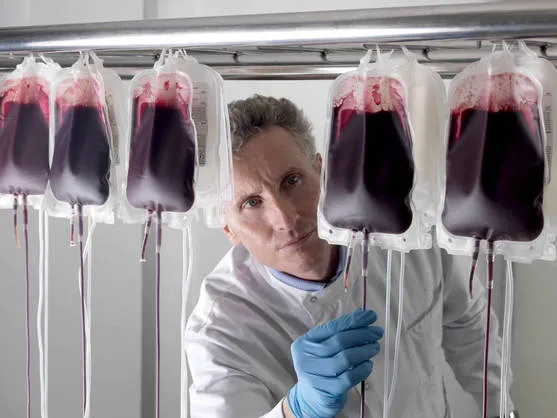
De repente alguien te pregunta y no tienes ni idea de cuál es tu grupo sanguíneo. "Creo que...A+, no... era 0-..., bueno, no sé", acabas respondiendo. Si creías que no era importante conocerlo, estás equivocado. Según un estudio publicado en 'Wiley Interdisciptionary Reviews: Systems Biology and Medicine', saberlo puede ayudarte.
Es posible que hayas escuchado que el grupo sanguíneo AB es el más raro de encontrar (solo un 0,6 de la población lo tiene). Aunque es cierto, si se comparan las 8 combinaciones diferentes que se pueden hacer con A, B, O y D + o D-, los porcentajes cambian un poco dependiendo de la etnia.
Suddenly someone asks you and you have no idea what your blood group is. "I think ... A +, no ... it was 0 -..., well, I don't know," you end up replying. If you thought it was not important to meet him, you are wrong. According to a study published in 'Wiley Interdisciptionary Reviews: Systems Biology and Medicine', knowing this can help.
You may have heard that blood group AB is the rarest to find (only 0.6 of the population has it). Although it is true, if the 8 different combinations that can be made with A, B, O and D + or D- are compared, the percentages change a bit depending on the ethnicity.
¿Cómo afecta entonces el tipo de sangre que tengas a tu salud? Desde riesgo de sufrir enfermedades cardíacas, demencias, norovirus hasta infecciones de tracto urinario, que sepas este simple dato puede ayudarte. Si bien los estudios no son concluyentes sobre la causa y el efecto, la investigación destaca la importancia de conocer el tipo que tienes para saber cómo podría afectar a tu bienestar.
So how does your blood type affect your health? From risk of heart disease, dementia, norovirus to urinary tract infections, knowing this simple fact can help you. While studies are inconclusive on cause and effect, research highlights the importance of knowing what type you have to see how it might affect your well-being.
Infartos
Tu tipo de sangre ayuda a determinar si estás en riesgo de sufrir un ataque cardíaco, según sugiere una investigación presentada en 'Heart Failure 2017-4th World Congress on Acute Heart Failure'. Las mujeres pertenecientes al grupo 0 tienen más dificultades para quedarse embarazadas por una menor calidad y un recuento más bajo de óvulos Los investigadores analizaron datos de más de 1.300.000 personas de nueve estudios previos y concluyeron que aquellos con sangre tipo A, B o AB tenían un 9% más probabilidades de sufrir un infarto que aquellos tipo 0. Lo que produce el aumento del riesgo cardíaco no está exactamente claro, pero una posibilidad podría ser porque las personas con este tipo de sangre tienen mayores concentraciones de una determinada proteína en el momento inicial de la hemostasia, lo que se llama factor von Willebrand.
Heart attacks
Your blood type helps determine if you are at risk for a heart attack, research presented at 'Heart Failure 2017-4th World Congress on Acute Heart Failure' suggests. Women belonging to group 0 have a more difficult time getting pregnant due to a lower quality and a lower egg count The researchers analyzed data from more than 1,300,000 people from nine previous studies and concluded that those with type A, B or AB blood they were 9% more likely to have a heart attack than those of type 0. What causes the increased heart risk is not exactly clear, but one possibility could be because people with this blood type have higher concentrations of a certain protein in the initial moment of hemostasis, which is called von Willebrand factor.